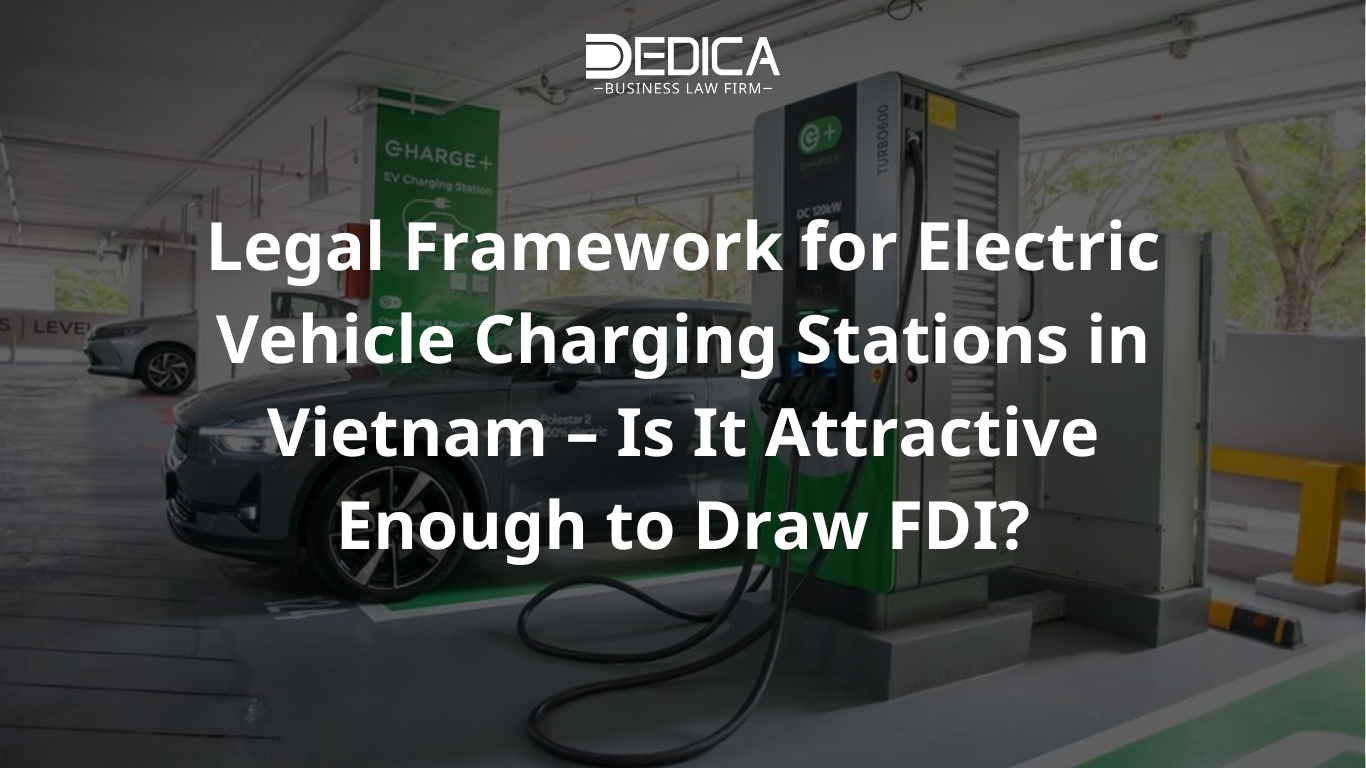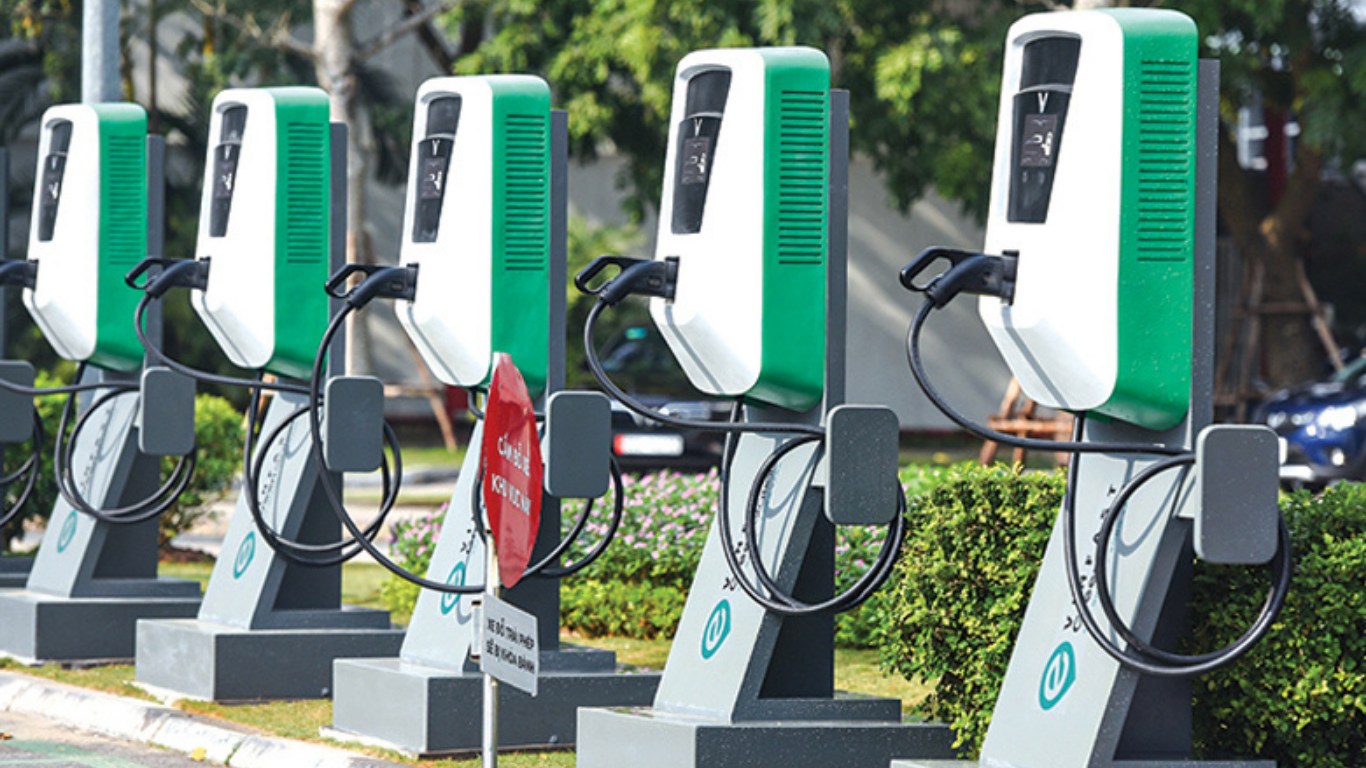No table of contents available

Currently, Vietnam is developing a National Technical Regulation (QCVN) for Electric Vehicle Supply Equipment (EVSE), setting strict requirements for technical specifications, safety, and labeling. The Ministry of Science and Technology (MOST), in coordination with the Ministry of Industry and Trade (MOIT), has finalized a draft and is preparing to issue it to regulate the EVSE market more systematically.
This regulation applies to both AC and DC chargers and mandates requirements on electric shock protection, overload protection, electromagnetic compatibility, and clear labeling (manufacturer, model, voltage, power, communication protocol, etc.).
Additionally, Circular No. 03/2024/TT-BKHCN has added the electricity measuring devices of charging stations to Group 2 of measuring instruments, enhancing measurement reliability.
The Deputy Prime Minister has directed the Ministry of Construction to guide localities in incorporating EV charging station planning into urban development plans. Meanwhile, MOIT is developing a preferential electricity pricing mechanism for charging stations, but no final policy has been issued. Likewise, support policies regarding land, taxes, and fees for charging station investors are still under research.
Vietnam is exploring the public–private partnership (PPP) model to develop EV charging infrastructure, where the government supports infrastructure and land, while private investors handle operation and capital investment.
Some proposals include tax exemptions, electricity subsidies, or preferential loans, but there are no concrete regulations or decrees in place yet.
For instance, in Hanoi, multiple high-capacity charging stations (120 kW per unit) have been deployed, serving up to 450 EVs simultaneously. However, there remain significant hurdles such as high investment costs (VND 1–3 billion per station), unclear legal frameworks on incentives, and underdeveloped technical standards.
Vietnam’s FDI legal framework, including the 2020 Investment Law and its guiding decrees, lays a solid foundation that ensures fair treatment and investor protection, especially in high-tech and environmentally friendly sectors.
Vietnam is also embracing a “green FDI” direction, prioritizing eco-friendly investments like EV charging stations as part of its investment cooperation strategy for 2021–2030.
The roadmap for technical standards (QCVN) builds investor confidence while aligning with international standards like IEC.
Regulations on land use, electricity pricing, and taxes remain ambiguous. FDI investors need clarity on equipment import duty exemptions, tax reductions, and electricity subsidies—but no official documents have been issued yet.
Although PPP models are encouraged, details such as tender mechanisms, infrastructure support commitments, and risk-sharing remain undefined.
Electrical infrastructure in many regions is still underdeveloped, incapable of supporting high-capacity fast chargers.
High investment costs (VND 1–3 billion per station) further hinder FDI potential if not backed by substantial government support.
In countries like Norway and California (USA), "Right to Charge" laws allow apartment residents to install EV chargers, creating optimal conditions for widespread adoption.
While Vietnam shows rapid EV adoption and a strong green transition commitment, its FDI strategy for EV charging infrastructure is still not compelling enough to attract high-quality investment flows as seen in developed countries.

Strengths:
The National Technical Regulation (QCVN) under development ensures safety and transparency.
The 2020 Investment Law provides a strong legal foundation.
Vietnam is actively promoting green FDI, with EV charging seen as a promising sector.
Weaknesses:
Investment incentives—taxes, electricity, land use—remain vague and lack practical implementation.
Local electrical infrastructure and planning are not yet ready for large-scale deployment.
High setup costs, with no specific support programs for FDI to mitigate risks.
📞 Hotline: (+84) 39 969 0012 (Available on WhatsApp, WeChat, and Zalo)
🏢 Head Office: 144 Vo Van Tan Street, Xuan Hoa Ward, Ho Chi Minh City (144 Vo Van Tan Street, Vo Thi Sau Ward, District 3, Ho Chi Minh City)
🕒 Business Hours: Monday – Friday (8:30 AM – 6:00 PM)
Reach out today for a free initial consultation with our team of professional lawyers!

Select a platform to view details